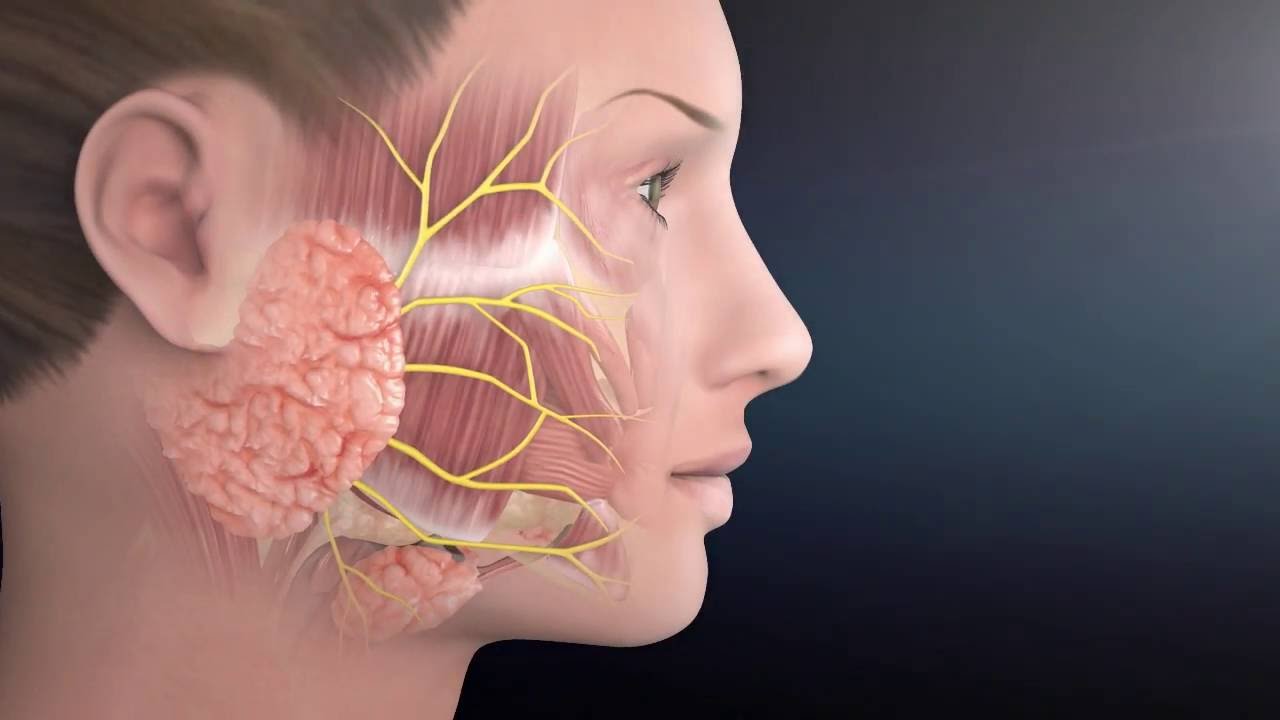Salivary Gland Tumor Removal in Lebanon
Search and Compare the Best Clinics and Doctors at the Lowest Prices for Salivary Gland Tumor Removal in Lebanon

Find the best clinics for Salivary Gland Tumor Removal in Lebanon
No clinics available
Germany offers the best prices Worldwide
Price: $ 8,031

- Home
- Lebanon
WHY US?
At Medijump, we're making medical easy. You can search, compare, discuss, and book your medical all in one place. We open the door to the best medical providers worldwide, saving you time and energy along the way, and it's all for FREE, no hidden fees, and no price markups guaranteed. So what are you waiting for?

Free

Best Price

Widest Selection

Risk-Free
What you need to know about Salivary Gland Tumor Removal in Lebanon

Salivary gland tumor is a rare type of tumor that starts in any of the salivary glands in your mouth, which can be benign (noncancerous) or malignant (cancerous). The salivary glands produce saliva to help you swallow, protect your teeth from bacteria, lubricate your mouth, and help the digestion of food. There are three major pairs of salivary glands: parotid, submandibular, and sublingual. Salivary gland tumors usually occur in the parotid gland and treatment often involves removal of the tumor.
What does a Salivary Gland Tumor Removal Procedure Involve?
You are given a general anesthetic so you are unconscious during the surgery. If the tumor is located in the parotid gland, your surgeon makes an incision that extends from the front of your ear to your neck to access the gland, then they carefully remove as much of the tumor as possible without harming your facial nerve. If the tumor has spread into deeper tissue, your surgeon may remove the entire gland.
How Long Should I Stay in Lebanon for a Salivary Gland Tumor Removal Procedure?
Most people are required to stay in the hospital for one to four days following the surgery. However, you should not leave Lebanon immediately after you are discharged from the hospital since you need to allow your body time to heal and attend follow-up checkups. The recommended length of stay is about 10 to 14 days.
What's the Recovery Time for Salivary Gland Tumor Removal Procedures in Lebanon?
The total recovery time until you do not feel any numbness and you are allowed to go back to your full routine can take as long as six months. However, you should be able to drive and do some light activities within 1-2 weeks. If your job is not too physical and does not involve heavy lifting, you may also be able to return to work in about two weeks.
What sort of Aftercare is Required for Salivary Gland Tumor Removal Procedures in Lebanon?
Your doctor will give you a set of instructions that you need to follow. It is really important for you to change your lifestyle by having regular exercise (aerobic exercise, such as walking, swimming, or biking) and following a healthy, well-balanced diet. You may also need to attend follow-up appointments, particularly if your tumor is cancerous, to make sure that the tumor has not returned and there are no new growths.
What's the Success Rate of Salivary Gland Tumor Removal Procedures in Lebanon?
Saliva gland tumor removal is a complicated surgery, but it is generally safe and effective if done by a skilled professional. All surgery carries some side effects and risks, and salivary gland tumor removal is no exception. The side effects and risks include bleeding, infection, blood clots, damaged nerve, lose control of facial muscles, Frey syndrome, change in appearance, and problems with the anesthesia.
Are there Alternatives to Salivary Gland Tumor Removal Procedures in Lebanon?
If your tumor is cancerous, your doctor may recommend you to undergo chemotherapy or radiation therapy to kill cancer cells. Make sure to talk to your doctor about the best treatment option for your specific case.
What Should You Expect Before and After the Procedure
Before salivary gland tumor removal, you may experience numbness in a part of your face, persistent pain, difficulty swallowing, swelling near your jaw, muscle weakness on one side of your face, and trouble opening your mouth widely. Salivary gland tumors can also spread to other organs and become life-threatening. After the removal, all of your symptoms can be relieved and the risk of the tumor spreading to other organs is reduced.
Whilst the information presented here has been accurately sourced and verified by a medical professional for its accuracy, it is still advised to consult with your doctor before pursuing a medical treatment at one of the listed medical providers
No Time?
Tell us what you're looking for and we'll reachout to the top clinics all at once
Enquire Now

Popular Procedures in Lebanon
Prices Start From $111

Prices Start From $404

Prices Start From $308

Recommended Medical Centers in Lebanon for procedures similar to Salivary Gland Tumor Removal

- Interpreter services
- Translation service
- Religious facilities
- Medical records transfer
- Medical travel insurance
- Health insurance coordination
- TV in the room
- Safe in the room
- Phone in the room
- Private rooms for patients available

- Interpreter services
- Translation service
- Religious facilities
- Medical records transfer
- Medical travel insurance
- Health insurance coordination
- TV in the room
- Safe in the room
- Phone in the room
- Private rooms for patients available

- Interpreter services
- Translation service
- Religious facilities
- Medical records transfer
- Medical travel insurance
- Health insurance coordination
- TV in the room
- Safe in the room
- Phone in the room
- Private rooms for patients available

- Interpreter services
- Translation service
- Religious facilities
- Medical records transfer
- Medical travel insurance
- Health insurance coordination
- TV in the room
- Safe in the room
- Phone in the room
- Private rooms for patients available
Salivary Gland Tumor Removal in and around Lebanon
Lebanon, a country on the eastern shore of the Mediterranean Sea, is one of the smallest sovereign states. The country boasts a fascinating mixture of the Middle East and the West, Christianity, and Islam, and tradition and modernity. It has everything from golden beaches and World Heritage Sites to energetic nightlife and delicious cuisine. Among other countries in the Middle East, Lebanon appears to be one of the most popular medical tourism destinations. Over 10% of the tourists visiting the country, particularly from neighboring countries, come to receive medical care. Many hospitals and clinics in the country are accredited to the ISO:9000 standard and offer world-class specialist services in spine treatment, orthopedics, organ transplant, and other complex surgeries, as well as advanced cancer treatments. Cosmetic and reconstructive surgery are also popular.
Popular Parts of Lebanon
Beirut, the capital and largest city of Lebanon, is filled with historic landmarks and natural wonders. The most famous attractions in the city are the National Museum of Beirut, the Corniche and Pigeon Rocks, Sursock Museum, and Mohammed Al Amin Mosque. Many people also come to Lebanon to visit the port town of Sidon. Once a rich and thriving Phoenician city, it is dotted with historical monuments and ancient remnants, particularly in its Old City. Other popular cities include Tripoly, Baalbek, Byblos, and Tyre.
Weather and Climate in Lebanon
Lebanon has four seasons: winter (December to March), spring (April to May), summer (June to September), and autumn (October to November). Winter is the rainy season with high precipitation levels and cool temperatures. It is snowy in the mountains, but in some places, such as Beirut, it just rains during this season. Summer is hot, sunny, and dry, and can get very humid in cities located close to the sea. In the summer, the average temperatures are around 28°C to 30°C. Spring and autumn are both warm and pleasant.
Getting around in Lebanon
The main international airport where visitors fly into and out of Lebanon is Beirut–Rafic Hariri International Airport, which is the only operational commercial airport in the country. It serves international flights to numerous major cities across Europe and the Middle East, including Moscow, Paris, London, and Dubai. Given the small size of the country, there are no internal flights. Intercity buses and minibus are available and have an extensive network, especially in coastal areas. The best way to get around the country is by hiring a car (with a driver) or by using intercity taxis.
Tourist Visas in Lebanon
All visitors need to obtain a visa to enter and stay in Lebanon unless they come from one of the seven visa-exempt countries (including Kuwait, Bahrain, Qatar, Saudi Arabia, Oman, the United Arab Emirates, and Jordan). Citizens of 81 countries, including all EU countries, Australia, China, Canada, and the United States, are eligible for a visa on arrival for a maximum stay of 30 days. A conditional visa on arrival is available for citizens of 15 countries, including Algeria, Libya, Iraq, and Yemen.
Additional Information
- Local Currency: Lebanese Pound (LBP) is the official currency in Lebanon. 1 USD is equivalent to around 1,507 LBP. US dollars and the euro is widely accepted as well.
- Money & Payments: ATMs are widely available in many places around Beirut and other large cities. Many ATMs dispense both US dollars and Lebanese pounds. Credit cards, particularly Visa and MasterCard, are accepted at most major establishments. Tipping can be expected, usually around 10% to 15% of the bill.
- Local Language: Arabic is the official language in Lebanon. English and French are widely spoken as well, and many Lebanese can speak at least two to three languages.
- Local Culture and Religion: Islam (around 60% of the population) and Christianity (around 34%) are the primary religions in Lebanon. About 5% of Lebanese practice the Druze faith, while other religions are practiced by the remaining 1% of the population.
- Public holidays: New Year’s Day, Christmas Day, Eid al-Fitr, Eid al-Adha, All Saints’ Day, Resistance and Liberation Day, as well as Independence Day are some of the more important holidays in Lebanon.
Popular Searches
- Plastic Surgery in Thailand
- Dental Implants in Thailand
- Hair Transplant in Thailand
- Breast Augmentation Thailand
- Gastric Sleeve in Thailand
- Gender Reassignment Surgery in Thailand
- Laser Hair Removal in Bangkok
- Botox in Bangkok
- Dermatology in Bangkok
- Breast Augmentation in Bangkok
- Coolsculpting in Bangkok
- Veneers in Turkey
- Hair Transplant in Turkey
- Rhinoplasty in Turkey
- Stem Cell Therapy in Mexico
- Rhinoplasty in Mexico
- Liposuction in Mexico
- Coolsculpting in Tijuana
- Rhinoplasty in Korea
- Scar Removal in Korea
- Gastric Sleeve in Turkey
- Bone Marrow Transplant in India
- Invisalign in Malaysia
- Plastic Surgery in the Dominican Republic
- Tummy Tuck in the Dominican Republic
- Plastic and Cosmetic Surgery in Poland
- Rhinoplasty in Poland
- Hair Implant in Poland
- Dental Implants in Poland
- IVF in Turkey